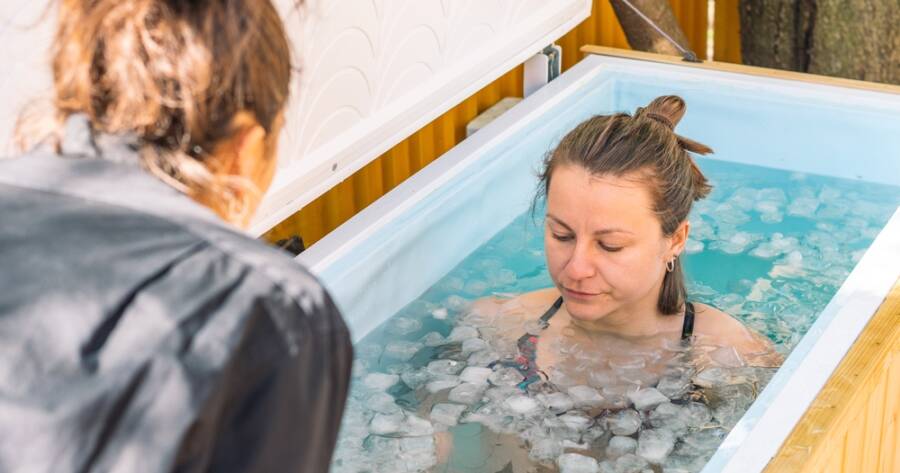Harness the power of sub-zero temperatures for holistic wellness. Discover its benefits for pain relief, inflammation reduction, and athletic recovery. Experience the rejuvenating effects of cryotherapy and elevate your overall well-being.
What is Cryotherapy?
Cryotherapy is a therapeutic technique that utilizes extremely low temperatures to treat a variety of medical conditions. It involves exposing the body, or a specific part of the body, to freezing temperatures for a controlled period of time. Cryotherapy can be applied locally, targeting a specific area, or as a whole-body treatment. The primary mechanism of action is the body’s response to the extreme cold, which triggers various physiological and cellular changes.
During cryotherapy, the body’s blood vessels constrict, reducing blood flow to the treated area. This constriction helps to reduce inflammation and swelling. As the blood vessels dilate after the treatment, fresh, oxygen-rich blood rushes to the treated area, promoting healing and regeneration. Additionally, cryotherapy stimulates the release of endorphins, the body’s natural painkillers, which help to alleviate pain and discomfort.1
Cryotherapy has been used for centuries to treat various ailments, with evidence of its use dating back to ancient Greece and Egypt. However, it has gained significant popularity in recent years due to its effectiveness in managing a wide range of conditions, including chronic pain, sports injuries, skin conditions, and even certain neurological disorders.
Cryotherapy: A Promising Treatment Option
Cryotherapy has shown promise as a treatment option for a variety of medical conditions. In the field of pain management, cryotherapy has been found to be effective in reducing chronic pain, including lower back pain, neck pain, and arthritis. The cold temperatures help to reduce inflammation and block pain signals, providing relief from discomfort.
In sports medicine, cryotherapy is commonly used to treat sports injuries, such as muscle strains, sprains, and contusions. The cold temperatures help to reduce swelling and inflammation, promoting faster healing and recovery. Cryotherapy can also be used as a preventive measure to help athletes recover after intense workouts or competitions.2
Beyond pain management and sports injuries, cryotherapy has also been explored for its potential benefits in treating skin conditions. It has been found to be effective in reducing the appearance of wrinkles, fine lines, and age spots. Additionally, cryotherapy has shown promise in treating certain neurological disorders, such as multiple sclerosis and Parkinson’s disease, by reducing inflammation and improving nerve function.
Cryotherapy: Benefits and Applications
Cryotherapy offers a range of benefits and has various applications in different fields. One of the key benefits of cryotherapy is its ability to reduce inflammation and swelling. This makes it an effective treatment for conditions characterized by inflammation, such as arthritis, bursitis, and tendonitis.
Cryotherapy also promotes faster healing and recovery by stimulating blood flow and the release of endorphins. This makes it beneficial for treating sports injuries, muscle strains, and sprains. Additionally, cryotherapy can help to improve skin texture and appearance by reducing wrinkles and fine lines, and it may also have potential benefits in treating certain neurological disorders.
Cryotherapy is typically administered by a trained professional in a clinical setting. However, there are also home cryotherapy devices available for personal use. These devices are typically smaller and less powerful than those used in clinics, but they can still provide some benefits. It is important to follow the manufacturer’s instructions carefully when using a home cryotherapy device to ensure safe and effective use.
Learn More About Cryotherapy
Cryotherapy is a versatile and effective treatment option that offers a range of benefits. If you are considering cryotherapy as a treatment for a medical condition, it is important to consult with a healthcare professional to determine if it is right for you. They can provide guidance on the appropriate treatment protocol and help you understand the potential risks and benefits.
